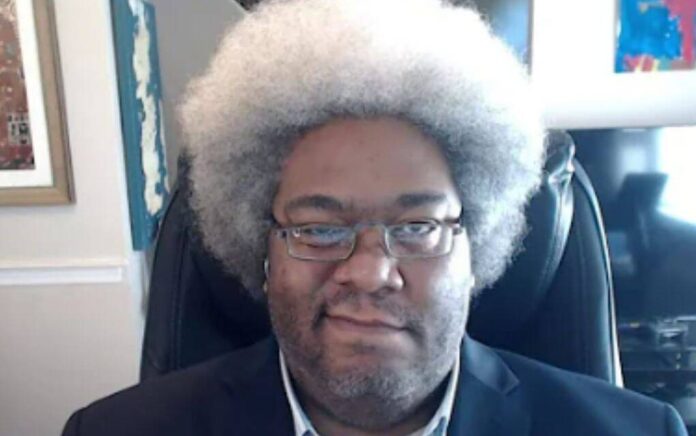
Leftists seem to despise the U.S. They don’t know how good they have it in this country.
And an MSNBC contributor bashed the United States in a hate-filled rant caught on camera.
In a discussion on Joy Reid’s new show, regular MSNBC guest and The Nation’s justice correspondent Elie Mystal made a bold call for international sanctions against the United States. His remarks came in the wake of U.S. military strikes targeting Iranian nuclear facilities, a move he believes cements America’s role as a global aggressor.
“We are the bad guys on the world stage,” Mystal declared, framing the U.S. as a threat to global peace. Joined by Reid, the former MSNBC host, the conversation took a sharp turn toward criticizing U.S. foreign policy, with both appearing to align with Iran, a nation widely recognized as a leading state sponsor of terrorism.
Mystal didn’t hold back, urging the international community to take a stand. “Joy, I’ve argued — and I don’t say this lightly — but our country needs to be sanctioned,” he said. “We are a menace to not only free people everywhere, but we are a menace to peaceful people everywhere at this point.”
He questioned when global leaders would decide “enough is enough,” pointing to America’s wealth and economic influence as barriers to accountability. “I know we’re rich. I know we’ve got a lot of money. I know that people want to buy things from our country because we’re rich, or want to sell things to our country because we are rich. But at some point the international community has to stand up to us because we are a bad guy on the world stage, right? And so we should be sanctioned. We should be sanctioned and rebuked.”
Elie Mystal: "Our country is THE bad guy on the world stage. The world needs to stand against America. Sanction us." pic.twitter.com/3OjPx52Ryn
— End Wokeness (@EndWokeness) July 2, 2025
This isn’t Mystal’s first time challenging the legitimacy of American institutions. He has previously argued that laws enacted before the 1965 Voting Rights Act should be viewed as “presumptively unconstitutional.”
On ABC’s “The View,” he stated, “Before the 1965 Voting Rights Act, we were functionally an apartheid country. Not everybody who lived here could vote here.” He dismissed the relevance of pre-1965 legislation with a blunt remark: “So why should I give a **** about some law that some old white man passed in the 1920s?”
Mystal’s rhetoric also extended to domestic politics. A couple months before President Donald Trump’s second-term victory, Mystal appeared on Reid’s former MSNBC show, claiming Trump’s support stemmed from a base that was “just as despicable.”
He described Trump as a narcissist with a “complete lack of compassion and empathy for everybody else,” comparing him to Andrew Jackson. “It’s all about him, him, him, me, me, me,” Mystal said.
“He’s probably the least compassionate president we’ve had in 200 years since Andrew Jackson. And it works for him because his supporters are just as ungenerous, and have just as little compassion and empathy for others.”
Mystal’s comments reflect a growing sentiment among some Democrats, who appear increasingly critical of the United States itself. This perspective, which often paints America as a force of harm both domestically and globally, comes across as completely ungrateful.
Critics argue that such rhetoric dismisses the nation’s contributions to global stability, democracy, and innovation, while supporters claim it’s a necessary reckoning with historical and ongoing flaws.
The trend has raised concerns among moderates who fear it alienates voters and fuels division, pointing to the 2024 election as evidence of a backlash against this narrative.
The Democratic Party’s internal struggles with patriotism are evident in the rhetoric of figures like Mystal, who seem to prioritize critique over pride in American identity.
The shift has led some to question whether the party’s messaging risks undermining itself, particularly in a time of heightened political polarization.
As the 2026 midterms loom, Democrats face a pivotal moment. Rebuilding trust with voters who feel alienated by anti-American sentiment will require a careful balance of acknowledging past mistakes while championing the nation.
Without this, the party risks further electoral setbacks, as the 2024 results suggest that the general public is fed up with the current state of the Democrat Party.
Stay tuned to The Federalist Wire.



















